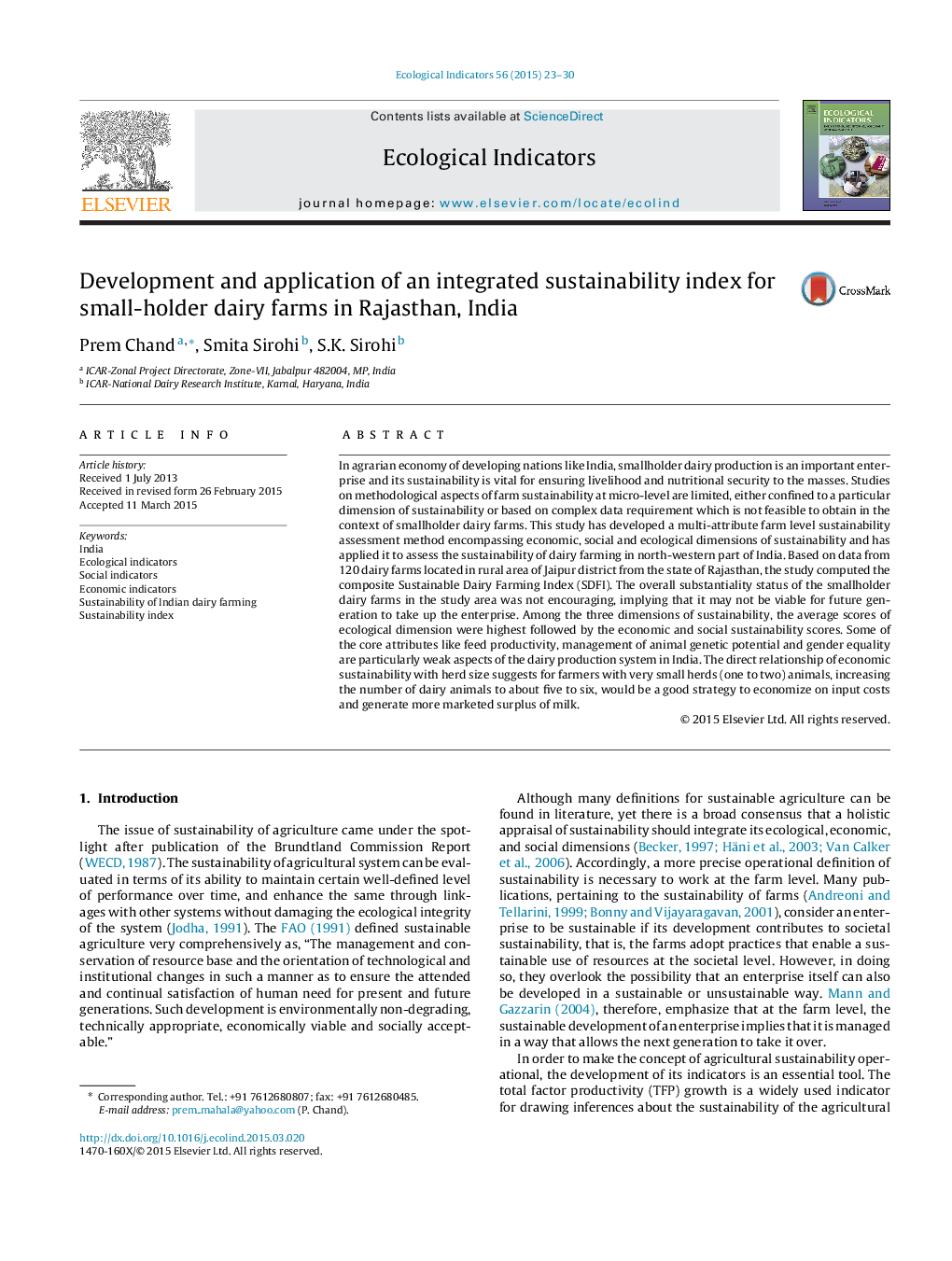| Article ID | Journal | Published Year | Pages | File Type |
|---|---|---|---|---|
| 6294320 | Ecological Indicators | 2015 | 8 Pages |
Abstract
In agrarian economy of developing nations like India, smallholder dairy production is an important enterprise and its sustainability is vital for ensuring livelihood and nutritional security to the masses. Studies on methodological aspects of farm sustainability at micro-level are limited, either confined to a particular dimension of sustainability or based on complex data requirement which is not feasible to obtain in the context of smallholder dairy farms. This study has developed a multi-attribute farm level sustainability assessment method encompassing economic, social and ecological dimensions of sustainability and has applied it to assess the sustainability of dairy farming in north-western part of India. Based on data from 120 dairy farms located in rural area of Jaipur district from the state of Rajasthan, the study computed the composite Sustainable Dairy Farming Index (SDFI). The overall substantiality status of the smallholder dairy farms in the study area was not encouraging, implying that it may not be viable for future generation to take up the enterprise. Among the three dimensions of sustainability, the average scores of ecological dimension were highest followed by the economic and social sustainability scores. Some of the core attributes like feed productivity, management of animal genetic potential and gender equality are particularly weak aspects of the dairy production system in India. The direct relationship of economic sustainability with herd size suggests for farmers with very small herds (one to two) animals, increasing the number of dairy animals to about five to six, would be a good strategy to economize on input costs and generate more marketed surplus of milk.
Related Topics
Life Sciences
Agricultural and Biological Sciences
Ecology, Evolution, Behavior and Systematics
Authors
Prem Chand, Smita Sirohi, S.K. Sirohi,
